On February 21, 1848, Marx and Engels published the Communist Manifesto. The stirring text was written by these two young radicals on behalf of the Communist League.
The Manifesto did not have an impact until the 1870s, when the workers’ and socialist movements grew inside Europe and adopted it as one of their key texts. It was translated into many languages and circulated widely. The book is written like a detonator, the sentences explosive, the ideas prophetic. The book — only 23 pages — is not a pamphlet of doom, although there are passages of great feeling about the catastrophes of capitalism. It is a pamphlet written of hope and action, of revolution by the vast majority of human society, the workers and the peasants, whom Marx gave the name ‘proletariat’. This is a text that deserves to read and re-read, to be elaborated and debated. It is prophetic in so many parts, but also inspirational in its tone.
IN 1999, Fidel Castro of Cuba travelled to Caracas, Venezuela, to deliver an important speech at the central university. The USSR had collapsed, Fidel said, and the ‘extremely powerful empire’, the United States and its global tentacles, mounted a ‘ceaseless ideological battle with all their resources’. Structures of globalisation weakened the national projects of many states, whose agendas were increasingly set by the International Monetary Fund and by transnational corporations. We are a ‘people armed with just ideas’, Fidel said, ‘endowed with a great political consciousness’. Today, we must mount a ‘battle of ideas’, fighting to defend humanity against brutality.
Twenty years after Fidel’s speech, at the initiative of LeftWord Books, Left publishers across India came up with the idea of holding a Red Books Day to champion our Left ideas, our ideas for all of humanity, against the suffocating ideas of austerity and war, the ideas of capitalism and imperialism. We felt that such a Day would allow us to go out into the public and proclaim our ideas, to stand boldly with Left authors, Left publishers, Left printers, and Left bookstores.
The Indian Left publishers chose February 21 as Red Books Day to honour the publication of the Manifesto, but also for two other reasons: first, February 21 is also the United Nations’ International Mother Language Day, and second, Communist Party of India leader and LeftWord Books author Govind Pansare was assassinated on February 20. The idea for the first Red Books Day — in 2020 — was to have people hold readings of the Manifesto in their own language, and to pledge to defend Left authors (such as Comrade Pansare), Left publishers, Left printers, and Left bookstores.
Listed below are a selected catalogue of 24 red books written by authors from across the world. Each of these red books carries forward the spirit of the original red book: the communist manifesto, the spirit of hope and action, of liberation and inspiration.
What is Marxism by Alan Woods and Rob Sewell

Get the book: https://mayday.leftword.com/catalog/product/view/id/17794/s/what-is-marxism/
In this epoch of instability, crisis, war and ever-growing inequality, Marxism is becoming an increasingly attractive proposition to millions of workers and young people around the world. The old mole of revolution, to use Karl Marx’s own phrase, is burrowing deep into the foundations of society. And yet we are repeatedly told that Marxism is either irrelevant, or out-dated, or even dead. Yet, if that were true, why are so many books and articles churned out year-on-year attacking Marxism? Clearly the powers that be are rattled or indeed frightened by these “dead” ideas. So what is this set of ideas that frightens them so much? Marxism – or scientific socialism – is the name given to the body of ideas first worked out by Karl Marx and Friedrich Engels more than 150 years ago. In their totality, these ideas provide a fully worked-out theoretical basis for the struggle of the working class to attain a higher form of human society – socialism. This book is aimed specifically at newcomers to Marxism. A bestseller now in its second edition, it comprises introductory pieces on the three component parts of Marxist theory, corresponding broadly to philosophy, social history and economics: dialectical materialism, historical materialism and Marxist economics. Complementing these introductions are key extracts from some of the great works of Marxism written by its most outstanding figures – Marx, Engels, Lenin and Trotsky
Reader in Marxist Philosophy, From the writings of Marx, Engels, and Lenin. Edited by Howard Selsam, Harry Martel
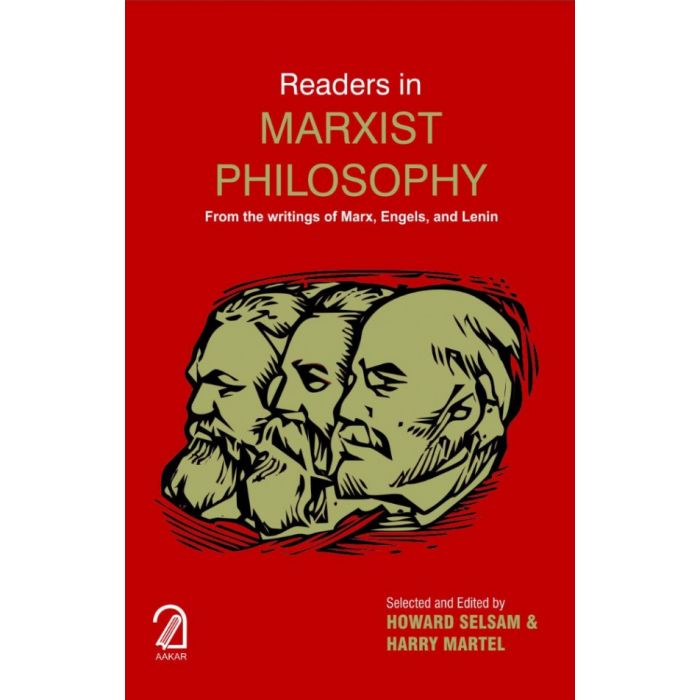
Get the book: https://mayday.leftword.com/catalog/product/view/id/20645/s/reader-in-marxist-philosophy/
This volume is designed to provide a coherent and systemic presentation of the Marxist world outlook as given by the great exponents themselves. It is the first volume devoted exclusively to their philosophical writings, many of which are scattered through innumerable works.
The book is divided as follows:
(I) What Marxism Is;
(II) Materialism versus Idealism,
(III) Dialectics and the Dialectical Method;
(IV) Theory of Knowledge and the Philosophy of Science;
(V) The Materialist Interpretation of History;
(VI) Religion;
(VI) Ethics.
Appendix A: The Formative Period;
Appendix B: Lenin’s Philosophical Notebooks
Why Marx Was Right by Terry Eagleton

Get the book: https://mayday.leftword.com/why-marx-was-right.html
In this combative, controversial book, Terry Eagleton takes issue with the prejudice that Marxism is dead and done with. Taking ten of the most common objections to Marxism—that it leads to political tyranny, that it reduces everything to the economic, that it is a form of historical determinism, and so on—he demonstrates in each case what a woeful travesty of Marx’s own thought these assumptions are. In a world in which capitalism has been shaken to its roots by some major crises, Why Marx Was Right is as urgent and timely as it is brave and candid. Written with Eagleton’s familiar wit, humor, and clarity, it will attract an audience far beyond the confines of academia.
Nothing Human is Alien to Me: Aijaz Ahmad in conversation with Vijay Prashad by Vijay Prashad
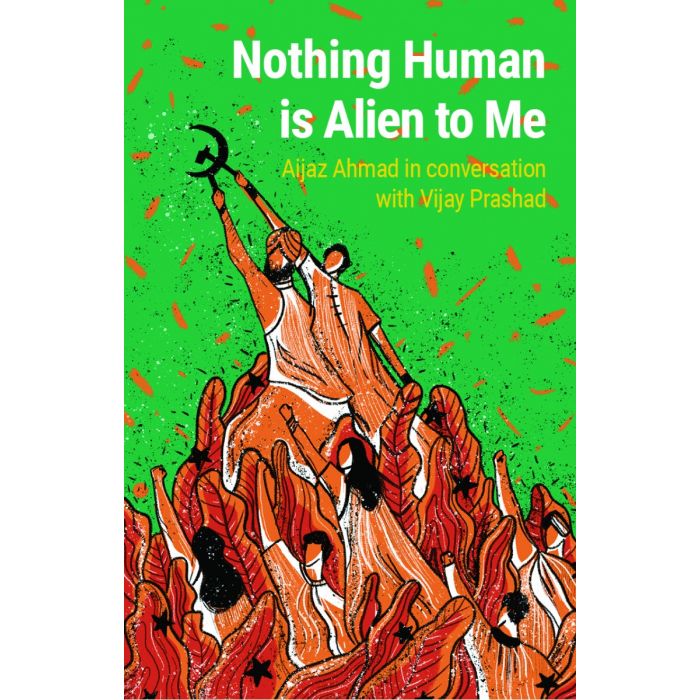
Get the book: https://mayday.leftword.com/nothing-human-is-alien-to-me.html
Two features characterize the entire body of Aijaz Ahmad’s work, which offers us a way to read the history of the present. First, his evident wide reading about the history and sociology of the world, which allows him to provide the necessary global context for his study and for our new times that remain tied to the contradictions of a longer history. Second, his grip on Marxism, a living Marxism, a Marxism that has absorbed both the streams of Western Marxism and of national liberation Marxism. Vijay Prashad writes that it is impossible for him to think without thinking alongside the work of Aijaz Ahmad. In this fascinating and wide-ranging conversation, he draws out Ahmad, separating and interweaving strands of his thought, and in the process inviting us, the readers, to take a look at the method that drives his analysis. In the process, we learn to think through the present, better.
Open Veins of Latin America: Five Centuries of the Pillage of a Continent by Eduardo Galeano and translated by C. Belfrage

Get the book: https://mayday.leftword.com/open-veins-of-latin-america.html
An outstanding political economy, a social and cultural narrative of the highest quality, and perhaps the finest description of primitive capital accumulation since Marx. Rather than chronology, geography, or political successions, Eduardo Galeano has organized the various facets of Latin American history according to the patterns of five centuries of exploitation. Thus he is concerned with gold and silver, cacao and cotton, rubber and coffee, fruit, hides and wool, petroleum, iron, nickel, manganese, copper, aluminum ore, nitrates, and tin. These are the veins which he traces through the body of the entire continent, up to the Rio Grande and throughout the Caribbean, and all the way to their open ends where they empty into the coffers of wealth in the United States and Europe. Weaving fact and imagery into a rich tapestry, Galeano fuses scientific analysis with the passions of a plundered and suffering people. An immense gathering of materials is framed with a vigorous style that never falters in its command of themes. All readers interested in great historical, economic, political, and social writing will find a singular analytical achievement, and an overwhelming narrative that makes history speak, unforgettably.
Only People Make Their Own History: Writings on Capitalism, Imperialism, and Revolution by Samir Amin
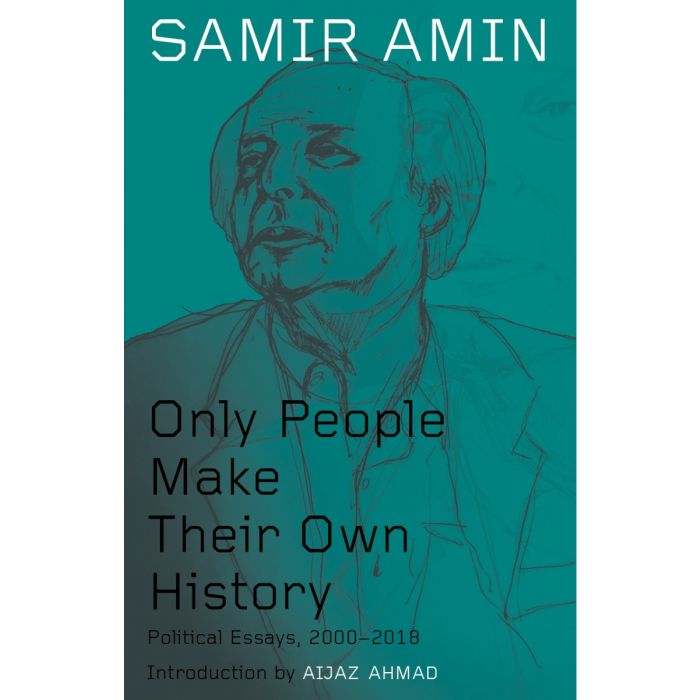
Get the book: https://mayday.leftword.com/only-people-make-their-own-history.html
Radical political economist Samir Amin left behind a cherished oeuvre of Marxist writings. Amin’s intellectual range—from economics to culture—was admirable, and his lessons remain essential. Monthly Review Press is honored to publish this volume, culled from the Monthly Review magazine, of ten of Samir Amin’s most significant essays written in the twenty-first century. The collection is introduced by Amin’s friend and comrade, the Marxist philosopher Aijaz Ahmad, who provides a comprehensive survey of Amin’s life and path-breaking work. Ahmad also offers a contextual focus by which to read such stunningly astute pieces as “Revolution or Decadence?” and “Contemporary Imperialism.” ‘Only People Make Their Own History’ is a loving and enlightening look at what the work of Samir Amin has meant—and will mean— to millions of people the world over.
From India to Palestine, Essays in Solidarity by Githa Hariharan

In 1948, Israel was created on Palestinian land. Palestinians lost their homes and villages; huge numbers were expelled; they became refugees elsewhere or in their own land. In 1967, the West Bank and Gaza were also occupied by Israel. For more than five decades now, Palestinians have suffered the violent and unjust realities of occupation. Not only does India have strong historical ties with the Arab world; but also the Indian freedom movement saw the struggle of the Palestinians for a homeland as a genuine struggle against colonialism. Both Gandhi and Nehru expressed this in no uncertain terms; so, later, did the non-aligned movement. Indian policy towards Palestine shifted radically in the 1990s. Israel has now become a major supplier of arms to India; it is also part of the complicated shift in India’s relationship with America, and India’s emerging vision of itself in the world. Fourteen new essays on India and Palestine-Israel by writers, scholars and activists: Aijaz Ahmad, Meena Alexander, Githa Hariharan, Sunaina Maira, Nivedita Menon, Ritu Menon, Sukumar Muralidharan, Seema Mustafa, Aditya Nigam, Prabhat Patnaik, Vijay Prashad, Prabir Purkayastha, A.K. Ramakrishnan, Nayantara Sahgal, Achin Vanaik.
Rank-and-File Bolshevik: A Memoir by Cecilia Bobrovskaya
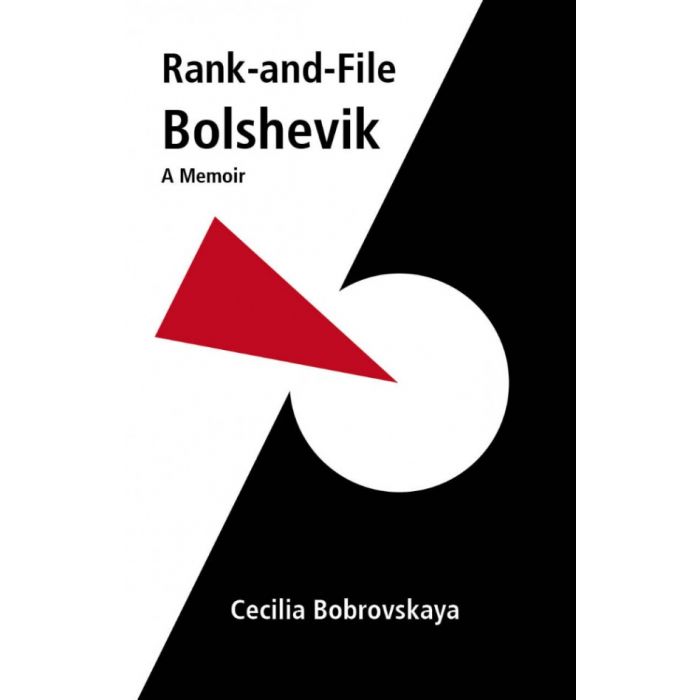
Get the book: https://mayday.leftword.com/rank-and-file-bolshevik.html
In 1921, Vladimir Lenin wrote a letter to a comrade, asking him to ensure that Cecilia Bobrovskaya (1873-1960) be provided with housing. ‘I have known Bobrovskaya since the epoch before 1905, ‘ Lenin wrote, ‘and know that she is capable of living in great hardship and be reticent about it excessively.’ Bobrovskaya was a member of the Society of Old Bolsheviks, a revolutionary from her youth. She was one of the thousands of committed radicals who helped build the organisations of the working-class across Russia in the decades before the Russian Revolution of 1917. In this book, Bobrovskaya tells her story of material deprivation and spiritual elevation. A dedicated Bolshevik, she worked hard to build her party and to raise the confidence of Russia’s working-class and peasantry. She worked quietly and tirelessly, helping build the momentum towards both the 1905 and the 1917 Revolutions. This book reproduces two texts by Bobrovskaya: her own memoirs and her short biography of Lenin. Bobrovskaya describes what it took to make the Revolution – not one push in 1917 but tens of thousands of pushes produced by people like herself, one of the many rank-and-file Bolsheviks.
Victor Jara, An Unfinished Song by Joan Hara

Get the book: https://mayday.leftword.com/victor-jara.html
Víctor Jara was a Chilean poet, singer, theatre director, and communist activist. He was tortured and killed after the coup of 11 September 1973, which overthrew the Salvador Allende government. This is the story of his remarkable life, told lovingly by his wife and fellow artist.
“Our path is lit by twin beacons of courage and love and light, Víctor and Joan Jara.” – Roger Waters
“As long as we sing his songs, as long as his courage can inspire us to greater courage, Víctor Jara will never die.” – Pete Seeger,
“An intensely moving account. A love story — an epic tragedy — but written with the Jaras’ shared faith that good can yet come out of evil.” – Peggy Aschcroft,
“Joan Jara describes with great power and clarity the aspirations of the people of Chile and the horror which descended upon them in 1973.” – Harold Pinter.
Liberate The Colonies! Communism And Colonial Freedom 1917-1924 by John Riddell, Vijay Prashad, Nazeef Molla
Get the book: https://mayday.leftword.com/liberate-the-colonies.html
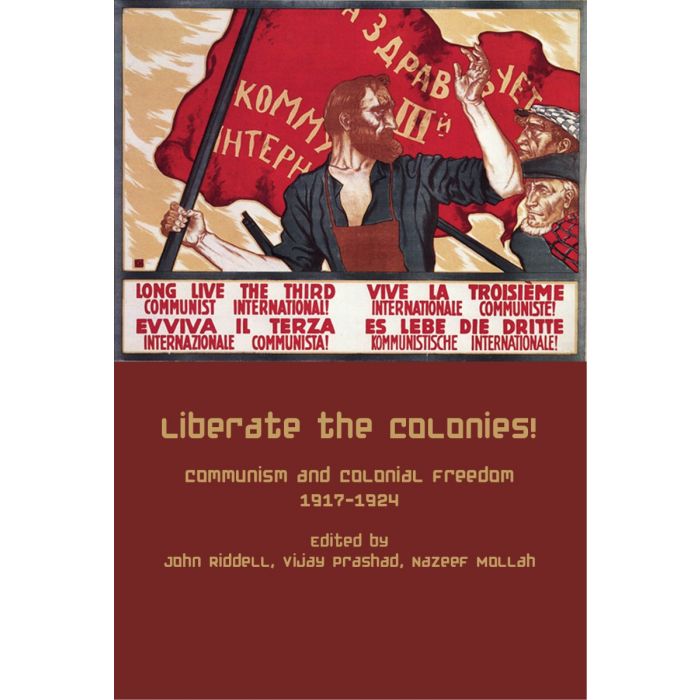
In the first years after the 1917 Russian revolution, a bold new cry was heard around the world, ‘Liberate the Colonies!’ It was voiced in Moscow by Marxists combating tsarist oppression of Asian peoples. It came from the world of Communism, which launched a great International for a global freedom struggle. It came from the colonies, where activists such as M.N. Roy, Ho Chi Minh, Tan Malaka and others worked to break the chains of empire. Over the decades, anti-colonial freedom movements transformed the face of the world. This book portrays how this movement took shape. Pioneer revolutionists from oppressed countries, in their own words, pinpoint the movement’s weaknesses, debate its problems, and develop a global strategy and programme. This precious historical record is vitally important to all those who seek a socialist future.
Essays in Indian History: Towards a Marxist Perception by Irfan Habib

Get the book: https://mayday.leftword.com/essays-in-indian-history-towards-a-marxist-perception.html
This collection brings together, for the first time, several seminal essays by Professor Irfan Habib interpreting the main currents in Indian history from a Marxist perspective. They cover a wide range of issues: the nature of evolution of caste through the centuries, the role played by the peasantry in Indian history, the forms of class struggle and the stage of development of the economy in Mughal India, the impact of colonialism on the Indian economy, the changes in Marx’s perceptions of India, the problems of Marxist historiography. Representing three decades of scholarship, each essay in this collection is painstakingly researched and unfailingly stimulating.
The RSS: A Menace to India by A.G Noorani

Get the book: https://mayday.leftword.com/the-rss.html
India is battling for its very soul.
The Rashtriya Swayamsevak Sangh (RSS) is the most powerful organisation in India today; complete with a private army of its own, unquestionably obeying its leader who functions on fascist lines on the Fuehrer principle. Two of its pracharaks (active preachers) have gone on to become prime ministers of India. In 1951 it set up a political front, the Bharatiya Jana Sangh, which merged into the Janata Party in 1977 only to walk out of it in 1980. In issue was its superior loyalty to its parent and mentor, the RSS; not the Janata Party. Within months of its defection, the Jana Sangh reemerged; not with the name under which it had functioned for nearly three decades, but as the Bharatiya Janata Party, deceptively to claim a respectable lineage.
This book is a magisterial study of the RSS, from its formation in 1925 to the present day. With scrupulous and voluminous evidence, one of India’s leading constitutional experts and political analysts, A.G. Noorani, builds a watertight case to show how the RSS is much more than a threat to communal amity. It poses a wider challenge. It is a threat to democratic governance and, even worse, a menace to India. It threatens the very soul of India.
And yet, despite its reach and seemingly overwhelming political influence, the author shows that the RSS can be defeated. The soul of India can be rescued.
Challenges to Indian Fiscal Federalism by T.M. Thomas Isaac, Lekha Chakraborty, R. Mohan

Get the book: https://mayday.leftword.com/challenges-to-indian-fiscal-federalism.html
The principle of fiscal federalism enshrined in India’s Constitution is under severe strain today. This book is a key addition to understanding the challenges involved. The authors capture the implications of the abolition of the Planning Commission, the introduction of the controversial Goods and Services Tax regime, and formulation of Terms of Reference of the 15th Finance Commission. These include the increase in vertical fiscal inequity, distortion of fairness in inter-State distribution, and erosion of policy autonomy at the level of the States.
Kerala has seen a unique effort to advance the devolution process from the State level to the panchayats and municipalities. Besides taking the path-breaking decision to devolve 40 per cent of State plan funds to local government institutions, the Kerala experiment involved a mass campaign to build capacity of local government. Kerala’s Finance Minister Thomas Isaac and his co-authors argue that protecting and enhancing devolution is essential for strengthening popular participation in development decision-making.
This book is being published at a time when some of the State finance ministers have been leading a campaign on the need for revisiting certain Terms of Reference of the 15th Finance Commission. This involvement in a movement to reverse the tendency to erode both the fiscal and policy autonomy of the State gives the book an edge and urgency that will place it at the centre of the debate on the attack on Indian federalism.
Weakening Welfare: The Public Distribution of Food in India by Madhura Swaminathan
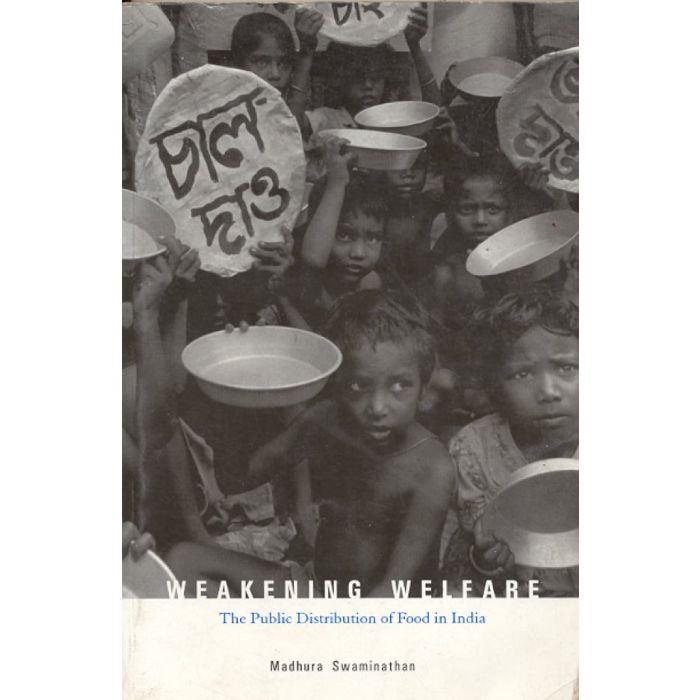
Get the book: https://mayday.leftword.com/catalog/product/view/id/16964/s/weakening-welfare/?___store=default
Weakening Welfare is a powerful argument for expanding and strengthening the public distribution system (PDS) in a country where hunger, poverty and malnutrition are as endemic as in India. The reigning orthodoxy of structural adjustment, however, preaches exactly the opposite. This book is a sharp indictment of food policies of the liberalization era. It demonstrates how these policies will worsen food and nutrition security among the vast majority of the Indian people. Looking at the effects of targeting of food subsidies on other countries, it marshals arguments in favour of making PDS universal. There is little doubt that PDS, as it functions today, has failed by and large to provide nutritional support to the people and requires genuine reform. The exception is Kerala, the only state in India where PDS has been near universal. This book discusses alternative proposals for making PDS an effective measure of food security. Written in a lucid, non-technical style, the book presents a wealth of recent data that will be as handy for the expert as for the interested layperson.
Memoirs of a Dalit Communist: The Many Worlds of R.B. More by Satyendra More, Edited by Anupama Rao and Translated by Wandana Sonalkar

Get the book: https://mayday.leftword.com/catalog/product/view/id/21578
R.B. More (1903–1972) was a leader in Babasaheb Ambedkar’s movement, a trade unionist and a member of the Communist Party of India (Marxist). More’s life, narrated in his words and those of his son Satyendra, illuminates the conflict between the promise of Marxist emancipation and the hard reality of the hierarchies of caste. His radicalism challenged both the limits of the politics of caste and the politics of the Left; his was a politics that frontally challenged the rigidities of the caste system and of the class structure. This memoir, written in Marathi, is here published for the first time in English. This is a rare work that brings together family history, political thought, and the social experience of urban workers whose lives are intertwined with the city they built, Bombay.
The Origin of the Family, Private Property and the State by Frederick Engels

Get the book: https://mayday.leftword.com/catalog/product/view/id/22128
After Marx’s death, in rummaging through Marx’s manuscripts, Engels came upon Marx’s precis of Ancient Society – a book by progressive US scholar Lewis Henry Morgan and published in London 1877. The precis was written between 1880-81 and contained Marx’s numerous remarks on Morgan as well as passages from other sources.
After reading the precis, Engels set out to write a special treatise – which he saw as fulfilling Marx’s will. Working on the book, he used Marx’s precis, and some of Morgan’s factual material and conclusions. He also made use of many and diverse data gleaned in his own studies of the history of Greece, Rome, Old Ireland, and the Ancient Germans.
It would, of course, become The Origin of the Family, Private Property and the State – the first edition of which was published October 1884 in Hottingen-Zurich.
Engels wrote The Origin of the Family, Private Property and the State in just two months – beginning toward the end of March 1884 and completing it by the end of May. It focuses on early human history, following the disintegration of the primitive community and the emergence of a class society based on private property. Engels looks into the origin and essence of the state, and concludes it is bound to wither away leaving a classless society.
In 1890, having gathered new material on the history of primitive society, Engels set about preparing a new edition of his book. He studied the latest books on the subject – including those of Russian historian Maxim Kovalevsky. (The fourth edition, Stuttgart, 1892, was dedicated to Kovalevsky.) As a result, he introduced a number of changes in his original text and also considerable insertions.
In 1894, Engels’s book appeared in Russian translation. It was the first of Engels’s works published legally in Russia. Lenin would later describe it as “one of the fundamental works of modern socialism.”
Economic and Philosophic Manuscripts of 1844 by Karl Marx
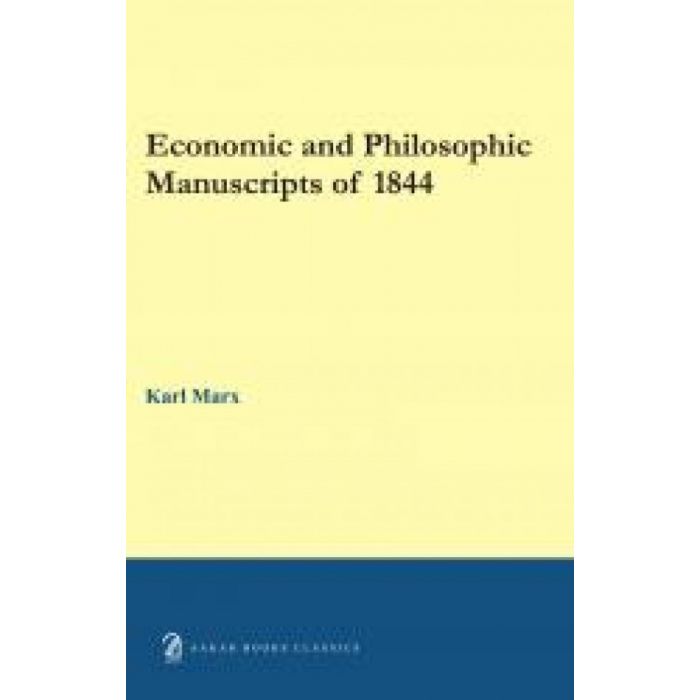
Get the Book: https://mayday.leftword.com/economic-and-philosophic-manuscripts-of-1844.html
Written by Karl Marx between April and August 1844 while living in Paris. It was during this period that Marx and Engels would meet and become friends.
The first thing to realize in reading this (now-famous) text is that it is a very rough draft and was by no means intended for publication, as is. It represents Marx’s first foray into analyzing political economy – a pursuit he’d undertake doggedly over the coming decades, leading ultimately to Capital.
Marx’s research into political economy convinced him a larger published work was possible. On February 1, 1845, he signed a contract with Darmstadt publisher Carl Leske for a book to be titled ‘A Critique of Politics and of Political Economy’. It was never completed for a variety of reasons and Leske cancelled the deal in September 1846, wanting to distance himself from the controversial political refugee.
Anti-Dühring by Engels

Get the book: https://mayday.leftword.com/catalog/product/view/id/22125
A classic of Marxism, ‘Anti-Dühring’ was highly recommended by Lenin as a ‘text book’ of scientific socialism. It was originally written as a polemic against Eugen Dühring, a German revisionist who challenged the basic ideas of Marxism by counterposing his own ‘scientific’ theories within the Social Democratic Party of Germany. Very reluctantly, Engels was forced to take up these ideas and in doing so explained in the clearest fashion the revolutionary theories of Marxism.
The original title was ‘Herr Eugen Dühring’s Revolution in Science’, but it became popularly known as ‘Anti-Dühring’. It was the first popular exposition of Marxist theory as a whole and the titles of the three parts – philosophy, political economy, socialism – are enough to indicate the broad scope of this famous work.
Originally published in parts in the ‘Leipzig Vorwärts’, starting in 1877, and in book form in 1878, ‘Anti-Dühring’ set out to demolish the ‘system creating’ claims of Dühring. Whilst Dühring himself is now a completely forgotten figure, this polemic has been a masterpiece of Marxist literature for more than 130 years and served to educate numerous generations in the fundamental ideas of scientific socialism.
Lenin Selected Writings by V.I. Lenin and Edited by Vijay Prashad
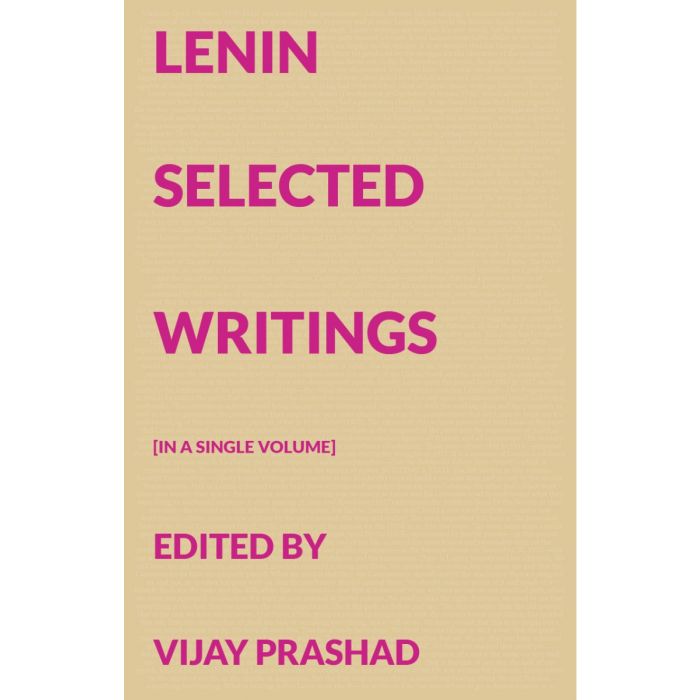
Get the book: https://mayday.leftword.com/catalog/product/view/id/21423
The essential writings of Lenin, in a single volume, for the radical revolutionaries of today and tomorrow. ‘Struggling uncompromisingly with the reformists and all kinds of distortionists of Marxism, Lenin brought scientific socialism to a new stage. He enriched Marxism, the great ideological weapon of the proletariat, and greatly contributed to the formulation of the theory of proletarian dictatorship. He developed the Marxist principle on the worker-peasant alliance, the national and colonial question, proletarian internationalism, the building and strengthening of a new type of proletarian party, which is the only organization capable of leading the multiform struggle of the working class and enslaved peoples. Lenin established a new theory of socialist revolution and demonstrated the possibilities of the triumph of socialism in a single country.’ — Ho Chi Minh
Selections From Political Writings (Volume 1 & 2) by Antonio Gramsci
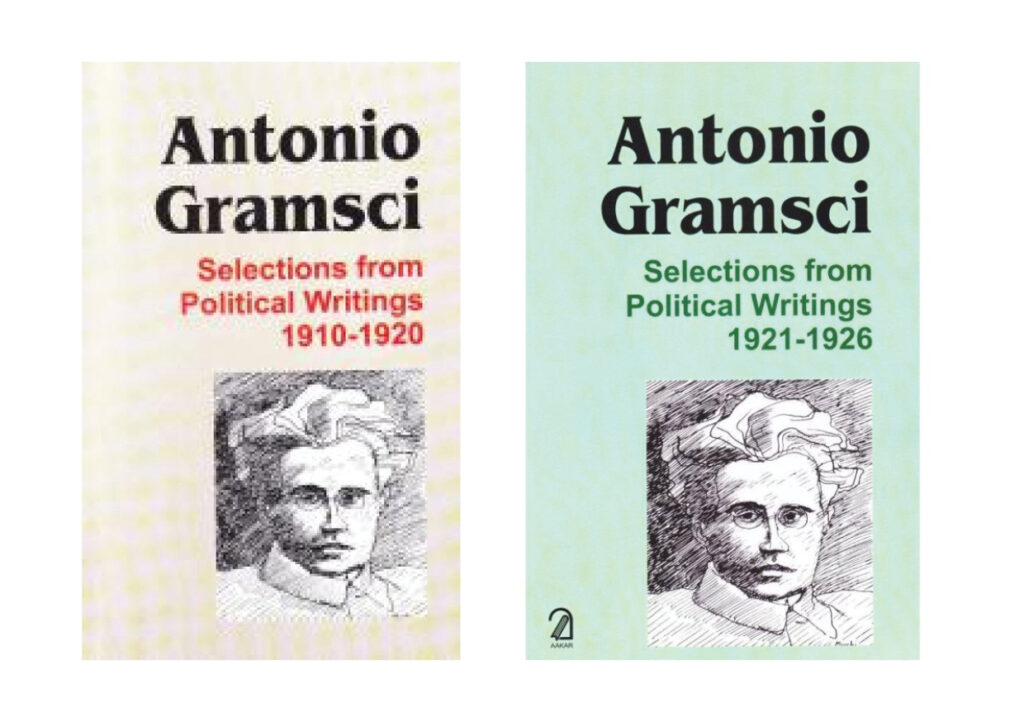
Get the book:
The first volume contains a selection of Antonio Gramsci’s political writings from the time of his initial involvement in Italian politics to his imprisonment by Mussolini in 1926.
This selection culminates in the ‘Red Years’ of 1919-20, and also features texts by Bordiga and Tasca from their debates with Gramsci. It traces Gramsci’s development as a revolutionary socialist during the First World War, the impact on his thought of the Russian Revolution and his involvement in the general strike and factory occupations of 1920. Also included are his reactions to the emerging fascist movement and contributions to the early stages of the debate about the establishment of the Communist Party of Italy.
The second volume covers the momentous years of the foundation of the Italian Communist Party (whose leader Gramsci was from 1924 until his arrest in 1926), the ascendancy of the Soviet Union as the authoritative force in the Communist International, and the rise and eventual triumph of fascism which forced Italian communism into nearly twenty years of illegality and Gramsci into prison. The crucial concerns of the articles, reports and letters in this volume are of central relevance to contemporary Marxism – the functioning of working-class power, the strategy of the united struggle against capitalism and against fascism, and the implications of proletarian internationalism – and the collection is indispensable for a proper understanding of the fighting tradition of the Italian Communist Party. Complete with introductory material, a chronology and full notes, and including relevant texts by other Italian Communist leaders, this English-language edition of the works of Antonio Gramsci makes available to a wider readership than ever before the writings of one of the most outstanding Marxist thinkers of Western Europe. Selections from Political Writings 1910-20 is part of Lawrence & Wishart’s award-winning series of translations of Gramsci’s writing, and the introductory material and explanatory notes make the Italian context of Gramsci’s work more easily accessible to the English-language reader.
Selected Ho Chi Minh by Ho Chi Minh and Edited by Vijay Prashad
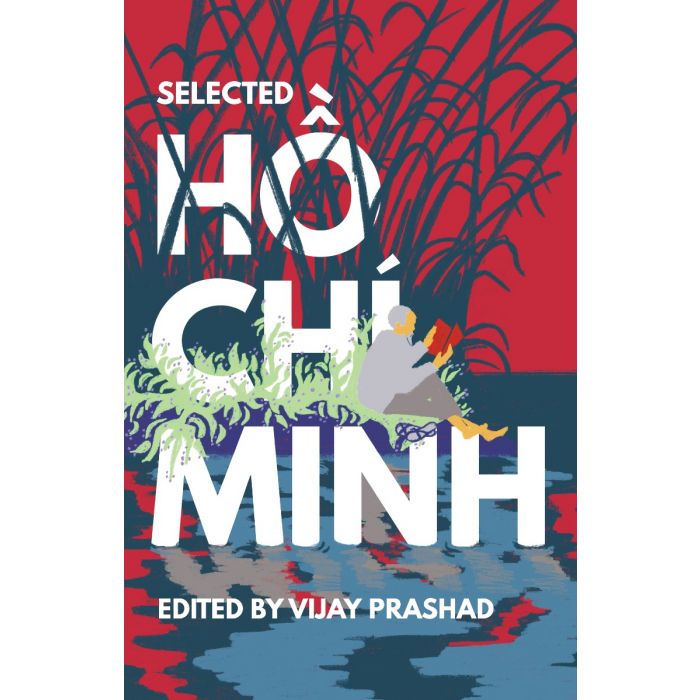
Get the book: https://mayday.leftword.com/selected-ho-chi-minh.html
For a revolutionary whose name is immortalised in songs and slogans worldwide, astonishingly little of Ho Chi Minh’s writing is available to a global readership. This volume seeks to fill that gap in some measure.
It is often said of Ho Chi Minh that he was not a theorist and that he did not leave behind a corpus of theoretical texts. This is a narrow and false judgment. Ho Chi Minh did not have the time to set out a major theoretical treatise on the nature of the Vietnamese Revolution, but the texts he left behind – a fraction of them collected in this volume – help us to understand the theory that enabled him to lead the Indochinese Communist Party and then the Workers Party to victory against imperialist aggression and to start the process of constructing socialism in Vietnam.
Arab Marxism and National Liberation: Selected Writings by Mahdi Amel, Edited by Hicham Safieddine and Translated by Angela Giordani
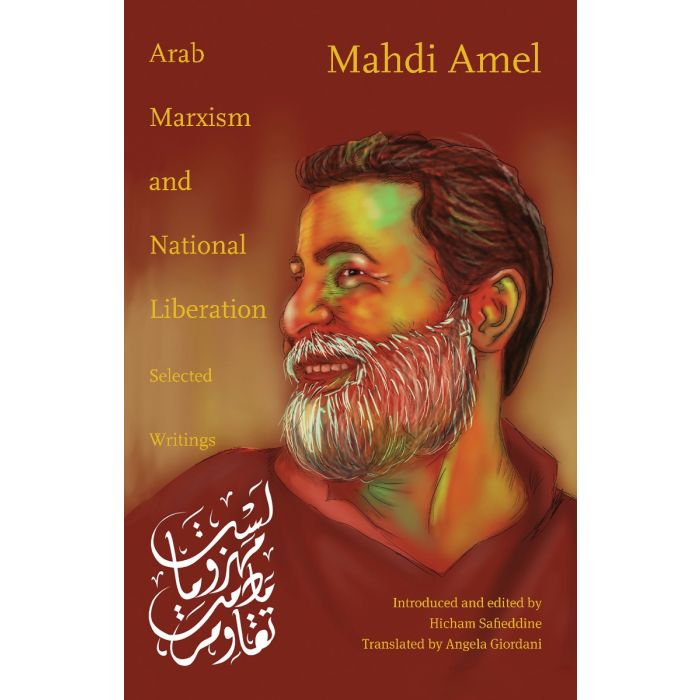
Get the book: https://mayday.leftword.com/catalog/product/view/id/22795
Mahdi Amel (1936–1987) was one of the most well-regarded and beloved Marxist theoreticians of his generation in the Arab world. He wrote widely and left behind a score of important books whose topics ranged from revolutionary theory to poetry.
What drove Mahdi Amel was a simple problem – how to produce Marxist concepts that would be faithful to Arab reality? When Marxism came to the Third World, it had to be supple and precise: to learn from its context and understand the ways that capitalism morphs into new venues and explores the ways for social transformation to drive history.
This collection brings for the first time to an English audience lengthy excerpts from six major works by Mahdi Amel. These include the two founding texts on colonialism and underdevelopment in which Amel began to grapple with the question of dependency, his treatise on sectarianism and the state, his critique of Edward Said’s analysis of Marx, his exposure of emerging Islamised bourgeois trends of thought as part of a broader critique of everyday thought, and his reflection on cultural heritage as perceived by Arab bourgeoisie.
The 1921 Uprising in Malabar: A Collection of Communist Writings, Edited by Nitheesh Narayanan and Vijay Prashad

Get the book: https://mayday.leftword.com/catalog/product/view/id/22719
In 1921, there was a peasant rebellion in Malabar in present-day Kerala. The British colonialists attempted to give it a communal colour, since most peasants were Muslim and the landlords Hindu. This narrative suited the landlords and served their interest. In our own times, forces of Hindutva have adopted the same communal narrative and are attempting to write the Malabar Rebellion of 1921 out of the history of the Freedom Struggle.
History, however, is the result of a complex interplay of several factors. The early communists and some secular nationalists understood the rebellion to have a class character, but which would be manifest — due to the land tenure system set in place in Malabar — with religious and caste characteristics. This volume collects six of the definitive Communist voices from 1921 to 2021 that challenge the attempt to communalise the Moplah Rebellion; instead, they offer fact-based, materialist analyses that foreground the class character of the agrarian revolt, the way in which class intersected with other social identities (of religion and caste) in the unfurling of the rebellion, and the national and international shape of the rebellion.
Together, these writings give the lie to the Hindutva narrative and assert the importance of rational, secular, and evidence-based history writing.
The Making of the Madras Working Class by D. Veeraraghavan

Get the book: https://mayday.leftword.com/catalog/product/view/id/16843
The Madras Labour Union, founded in April 1918, is the first organized labour union in India. May Day was first celebrated in India in Napier’s Park, Madras, in 1923. These are well-attested facts in the histories of the labour movement in India. There was, however, no coherent account of the labour movement in Madras until D. Veeraraghavan’s seminal study, The Making of the Madras Working Class. The present study surveys the industrial development in the city, and examines the origins of the working class, its structure, and the working and living conditions of the workers. The sheer documentary foundation on which this book is based alone makes it worthwhile and it is sure to become a standard reference work in the area of labour studies, the history of Madras, and the left movement.
Very Informative. Made me want to read a lot of them, especially the regional ones.